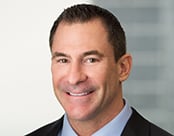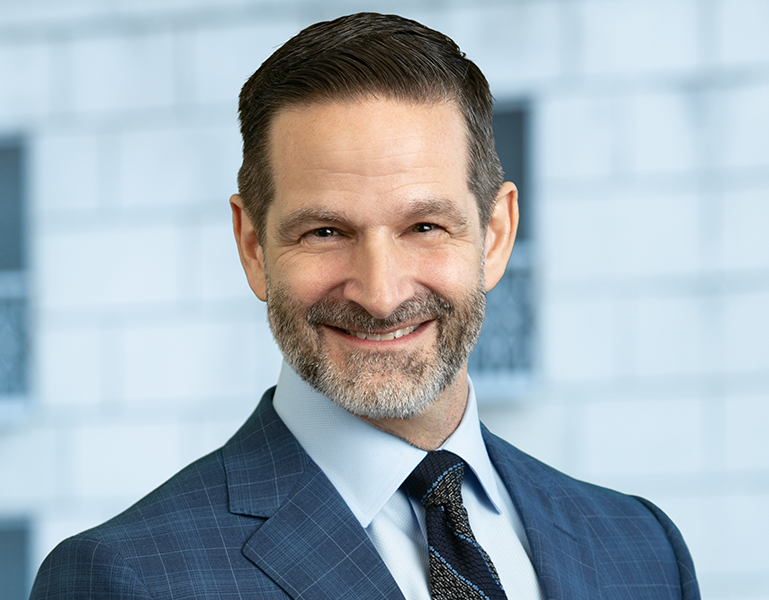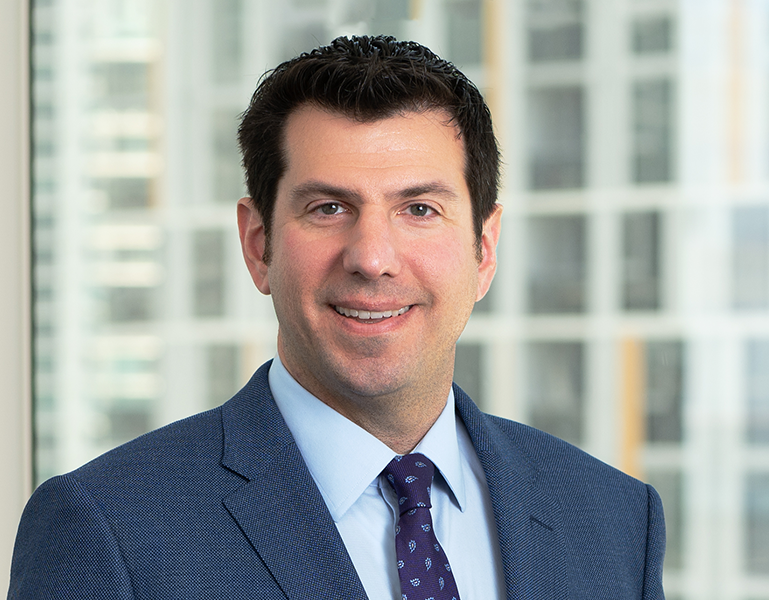DOJ Announces New Programs, Continued Focus on Corporate Conduct & Other Highlights from the ABA 39th Annual National Institute on White Collar Crime
Fireside Chat with Attorney General Merrick Garland
A highlight of the conference was a fireside chat with Attorney General Merrick Garland.
AG Garland first discussed the important lead the United States has with respect to artificial intelligence (AI) and emphasized its significance to the U.S. economy and national security. To that end, AG Garland warned that the Department of Justice (DOJ) would not tolerate theft of any intellectual property relating to AI and highlighted the recent indictment of a Chinese national charged with stealing trade secrets from Google. AG Garland further acknowledged AI’s double-edged sword. He noted the dangers of algorithmic discrimination, deep fakes used in phishing attempts, and the use of AI by foreign actors to attack elections in the United States. However, he touted the benefits of leveraging AI in ways that are more advantageous than human learning. To further the DOJ’s understanding of AI, AG Garland announced that he hired the DOJ’s first-ever chief science tech officer and is looking to hire additional Ph.D.s in computer science.
Additionally, AG Garland expressed admiration of the DOJ attorneys and their ability to filter out the noise of politics to “do the right thing in the right way.” However, he also showed deep concern at the heightened level of threats—as well as the speed with which those threats are turning into actual attacks—against public servants ranging from judges to voluntary election workers.
Finally, AG Garland reiterated that the DOJ’s “first priority” in the area of white collar crime is prosecuting individual bad actors, calling it the “greatest deterrence.” He explained that the integrity of our democratic and economic institutions depends on the belief that all are treated equal. AG Garland asserted that holding corporate executives to account, including via prison sentences, supports respect for the rule of law.
Deputy Attorney General Lisa Monaco’s Keynote Remarks
In a keynote address, Deputy Attorney General Lisa Monaco stated that the DOJ continues to devote significant resources to the most serious cases, to focus on holding culpable individuals accountable, and to pursue tough penalties for repeat offenders. Deputy Attorney General Monaco also announced the development of a new DOJ whistleblower program. For a comprehensive analysis of Deputy Attorney General Monaco’s remarks, please review our recent publication.
Keynote Remarks by Nicole M. Argentieri, Acting Assistant Attorney General for the Criminal Division
Acting Assistant Attorney General Nicole M. Argentieri discussed the Criminal Division’s focus on investigating and prosecuting the “most complex” financial crimes, and having “the greatest possible impact on corporate conduct.” AAAG Argentieri stressed that, “above all, [the Division’s] number one goal is holding culpable individuals accountable—including corporate executives, no matter how prominent or influential.” Among the recent cases she highlighted where the DOJ prosecuted individuals for white collar crimes (former Outcome Health executives and former Vitol, Inc. oil and gas trader), AAAG Argentieri drew attention to the investigation into Binance Holdings Limited (Binance), designating the outcome as “the largest corporate guilty plea that also involved the plea of the company’s CEO.” According to AAAG Argentieri, these convictions demonstrate the Criminal Division’s “commitment to holding gatekeepers to account” and willingness to go to trial when “culpable individuals don’t plead guilty,” in order “to show that corrupt business is bad business – and comes at personal cost.” Further emphasizing corporate accountability, AAAG Argentieri highlighted the Binance enforcement action, stating: “Our prosecution of Binance reaffirmed the bedrock principle that if you serve U.S. customers, you must obey U.S. law.”
Regarding the “many new” enforcement policies the Criminal Division issued in 2023, including the revised Corporate Enforcement and Voluntary Self-Disclosure Policy (CEP) and the launch of the Compensation Incentives and Clawbacks Pilot Program, AAAG Argentieri shared that these policies are intended to “articulate transparent criteria” for prosecutors to apply, and to provide “guideposts for companies and their counsel to consider when deciding what to do when faced with the prospect of a government investigation.” According to AAAG Argentieri, the Division’s enforcement policies should convey that “being a good corporate citizen is not just the right thing to do,” “[i]t is good business.” “Those who step up will be able to unlock the benefits afforded by [these] policies,” “[a]nd those who do not will face stiff punishments.” For companies deciding whether to voluntarily self-disclose, AAAG Argentieri warned, “[T]ake note – we now have more ways than ever to discover misconduct.”
Noting that the Criminal Division includes relevant “considerations” in every corporate resolution to assist companies and their counsel with understanding how the Division’s policies work in practice, AAAG Argentieri contrasted the criminal penalty reductions in recent cases (comparing SAP SE with Gunvor S.A.) to spotlight some of the key facts the Division evaluates when implementing the CEP and the Compensation Incentives and Clawbacks Pilot Program, and assessing corporate recidivism.
AAAG Argentieri concluded her remarks by discussing the Criminal Division’s “new tools” for identifying and prosecuting corporate crime. First, following up on Deputy Attorney General Lisa Monaco’s announcement on the DOJ’s 90-day “policy sprint” to develop a new whistleblower program, AAAG Argentieri reiterated that the program will offer financial incentives to disclose misconduct in areas where no such incentives currently exist, e.g., foreign corruption cases that are outside the jurisdiction of the SEC, including Foreign Corrupt Practices Act (FCPA) violations by non-issuers. The Criminal Division’s Money Laundering and Asset Recovery Section (MLARS) will have a leading role in designing the program because the authority for this program, arising under 28 U.S.C. § 524(c)(1)(C), is tied to the DOJ’s forfeiture program. The DOJ expects to limit rewards to cases with an as-yet-unknown minimum forfeiture threshold, and only “to whistleblowers who submit original, non-public, truthful information not already known to the department, and only when that information is provided voluntarily and not in response to any government inquiry, preexisting reporting obligation, or imminent threat of disclosure.”
Lastly, AAAG Argentieri announced that the Criminal Division will apply the Foreign Extortion Prevention Act (FEPA) (enacted as part of the National Defense Authorization Act for Fiscal Year 2024) to hold corrupt foreign officials accountable. As codified in the newly revised Justice Manual, the DOJ will approach FEPA cases the same way it does FCPA cases, with the Fraud Section providing centralized supervision.
Keynote Remarks by Matthew G. Olsen, Assistant Attorney General for the National Security Division
In a keynote address by the head of the DOJ’s National Security Division (NSD), Assistant Attorney General Matthew G. Olsen discussed the NSD’s “sharpened” focus and “increased capacity” regarding (1) the enforcement of sanctions and export controls, (2) the disruption of malicious cyber activity and foreign malign influence, and (3) the risks posed by foreign investment in U.S. companies, “especially those that are developing sensitive technology and hold vast U.S. data.” Key to these efforts is corporate enforcement. This includes not only “a core responsibility” of finding and prosecuting corporate and individual wrongdoers but also, “rely[ing] on financial institutions and technology companies to be gatekeepers and to build strong compliance programs to prevent, detect, and report violations.”
Stressing the importance of voluntary self-disclosures in driving corporate responsibility and protecting national security, AAG Olsen highlighted the NSD’s corporate enforcement efforts. He noted the DOJ’s first-ever guilty plea (2022) by a corporation for conspiring with and providing material support to a designated foreign terrorist organization, and the resulting $778 million penalty. In 2023, the DOJ obtained a guilty plea from a tobacco company for violating sanctions against North Korea, resulting in a $629 million penalty, and from Binance Holdings Limited for violating Iranian sanctions, which involved a $4.3 billion penalty.
Further, emphasizing the NSD’s role in stemming the flow of American’s sensitive data to American adversaries, AAG Olsen described the NSD’s efforts to implement the Executive Order issued on February 28, 2024 on Preventing Access to Americans’ Bulk Sensitive Personal Data and United States Government-Related Data by Countries of Concern. The Executive Order protects seven categories of information, including genomic and personal health data, geolocation information, personal identifiers, and bulk personal financial data, by preventing countries like Russia and China from purchasing such data from data brokers or accessing it through strategic investments and commercial relationships.
To implement the Executive Order, the NSD issued an Advance Notice of Proposed Rulemaking (ANPRM) to kick off the rulemaking process and seek public comments. Next, the NSD is “crafting a strategy for enforcement and compliance of this program” that will be “backed by the full suite of civil and criminal authorities” under the International Emergency Economic Powers Act (IEEPA), including investigatory authorities and subpoena authority. Third, the NSD is ramping up staffing and resources.
Critically, AAG Olsen explained what companies should be doing before the rules implementing the Executive Order take effect next year. Because the proposed rules will apply “to certain transfers of data to non-U.S. consultants and investors who are based in countries of concern,” AAG Olsen advised companies to: (1) “know your data,” by understanding what data categories the company transacts in, how much data, and whether appropriate safeguards are in place to prevent misuse; (2) “know where that data is going,” by reviewing existing agreements for the sale or sharing of data to third parties and updating such agreements to ensure sufficient confidence in the data’s destination; (3) “know who has access to that data,” by understanding what data the company is making available; and (4) “know your data sales,” by considering transactions that involve the sale of data and, where third-party data brokers are involved, whether the company has confidence in such brokers. AAG Olsen stressed the importance of “start[ing to ask] these questions now,” and conveyed that, “[a]s in the sanctions and export control regime, companies will need to develop risk-based compliance programs tailored to their individualized risk profiles” in order to address not only “the profound privacy implications, but also, our national security in ensuring U.S. sensitive data does not fall into dangerous hands.”
Other Conference Highlights
Beyond the keynote addresses, the conference featured robust panel discussions on a variety of topics, including the following:
- Conversation with the Enforcers and Regulators: Panel members discussed taking a tougher approach to address corporate recidivism. The panel members explained the clear need for more significant penalties to restore trust in regulators and as a future deterrent to corporate misconduct. Regulators continue to encourage corporations to utilize the voluntary self-disclosure programs if corporate misconduct is uncovered. The panel members noted that government agencies are providing transparent, consistent, and predictable outcomes for corporations that utilize the voluntary self-disclosure programs. The panel members further opined that corporate recidivists who self-report any misconduct will likely receive more favorable results than those repeat offenders that do not proactively cooperate with regulators.
- Compliance and Enforcement: Panel members discussed the DOJ’s recent guideline updates, focus, and expectations on ephemeral messaging, and provided practical compliance tips. According to Lauren Kootman, Assistant Chief in the Corporate Enforcement, Compliance & Policy Unit in the Fraud Section, Criminal Division, the DOJ continues to update its corporate enforcement policies to reflect lessons learned, formalize what the DOJ is doing, and provide transparency regarding the DOJ’s expectations and incentives. With respect to ephemeral messaging, Assistant Chief Kootman referenced the DOJ’s Evaluation of Corporate Compliance Programs (ECCP) (updated March 2023) guidance, explaining that the DOJ evaluates the steps companies take to understand and manage their compliance risk against their enterprise risk. This includes determining (i) whether the company has access to relevant information, enabling itself to conduct effective internal investigations; (ii) what the company does to work around roadblocks to accessing information; (iii) the company’s understanding of what messaging is available, where the communications are, what is offline, and what can be on company infrastructure; (iv) how the company develops and modifies its policies; and (v) whether the company is enforcing its policies. From the industry side, practical tips from panelists in COO positions included preparing an annual state of the compliance report for the board of directors that includes compliance training, thereby providing directors with an understanding of their responsibilities and specific measurable actions to take—information that ultimately constitutes a personal defense for board members in an enforcement action. Panelists also discussed the use of data analytics to help find potential patterns of misconduct, and the importance of ensuring that compliance, marketing, and commercial teams all have access to the same tools and data analytics.
- Securities Enforcement: Attorneys from both the DOJ and SEC, as well as the defense bar, addressed the government’s latest enforcement priorities with respect to securities law. Building upon AG Garland’s focus on technology and AI, the panelists discussed the importance in protecting assets and innovation in Silicon Valley. Further, the regulators warned against “fake it until you make it schemes” from charismatic young founders peddling “revolutionary” technology and pointed to Elizabeth Holmes, Sunny Bulwani, and Manish Lachwani as individuals who were recently held to account for their frauds. They also highlighted the significant actions taken by the government in the cryptocurrency space, including against Sam Bankman-Fried (founder of FTX Trading Ltd.), Alexander Mashinsky (founder of Celsius Network LLC), and Do Hyeong Kwon (founder of Terraform Labs PTE Ltd). Additionally, the regulators noted that while the government is focused on combating frauds stemming from new technologies, they are still active in pursuing individuals committing classic frauds such as insider trading and improper revenue recognition schemes.
- Healthcare Fraud: A panel of attorneys from both the government and defense discussed healthcare fraud enforcement, including recent and future trends in the healthcare industry. Notably, Lisa Miller, Deputy Assistant Attorney General for the DOJ’s Criminal Division, Fraud and Appellate Sections, offered an overview of the Fraud Section’s current and future focuses. These included targeting the worst actors (oftentimes doctors with medical licenses on the line), telemedicine fraud, pandemic-related fraud, Medicare Advantage fraud, and cases involving private equity investments into healthcare programs. A panel member from the defense bar echoed that he also expected to see more private equity-related cases. He then added that he expects cyber security will begin to play a bigger part in healthcare fraud investigations and prosecutions, along with more AI-related issues entering the market. Miller stated that while there is no specific DOJ task force assigned to AI issues, the Healthcare Fraud Strike Forces will tackle AI as it relates to fraud in the healthcare space. Another panel member from the defense bar discussed why private equity investments in healthcare are all of a sudden a big deal. He noted that it is largely because the amount of money coming in to the industry from private investments is skyrocketing, which risks medical decisions being made based on business-related motivations rather than patient care concerns. This complication is especially true when the investors do not simply invest, but instead exert some type of control. With issues like AI and private equity investments being so new, it will be interesting to see how healthcare fraud prosecutions and defenses adjust and evolve in response.
- The False Claims Act: Attorneys from the government, defense bar, and relator’s (whistleblower’s) bar addressed recent developments in the False Claims Act (FCA) sphere. According to Michael Granston, Deputy Assistant Attorney General for the DOJ’s Commercial Litigation Branch, the U.S. Supreme Court’s 2023 decisions concerning FCA issues essentially reaffirmed the historical understanding held by courts and practitioners about the FCA. For example, Granston highlighted that in U.S. ex rel. Schutte v SuperValu Inc. (SuperValu), the Court found that the defendant’s subjective knowledge is always relevant to the question of whether the defendant knows the claim is false, even where a relevant provision is ambiguous. While SuperValu focused on the FCA’s false claim and false statement provisions, Granston opined that the decision has potential implications for all seven FCA provisions. Concerning the ruling in U.S. ex rel. Polansky v Executive Health Resources Inc. on the government’s authority to dismiss an FCA qui tam (whistleblower) action, Granston does not anticipate any significant changes in how the DOJ will evaluate and pursue qui tam cases, including intervention decisions. From the defense bar perspective, SuperValu is not instructive as to how subjective intent will be measured considering that many people, with differing opinions, can comprise a company. As such, a defense bar panelist stressed that the involvement of counsel is critical to bring the necessary dialogue companies must have on relevant issues under privilege. Lastly, Andrea Griswold, the Deputy U.S. Attorney for the Southern District of New York (SDNY), discussed the SDNY Whistleblower Pilot Program, which seeks to encourage early and voluntary self-disclosure of certain, nonviolent criminal conduct by individuals.
- Fraud and Bribery Prosecution: Panelists discussed the impact of the Ciminelli v. U.S., Percoco v. U.S., and “Varsity Blues” (U.S. v. Abdelaziz) decisions on the future of fraud and bribery prosecutions. In its last term, the U.S. Supreme Court decided Ciminelli and Percoco, two important mail/wire fraud cases. The mail and wire fraud statutes state that it is a crime to “obtain [] money or property by means of false or fraudulent pretenses, representations, or promises,” or to deprive someone of the “intangible right of honest services.” 18 U.S.C. §§ 1341, 1343, 1346. In Ciminelli, the Court invalidated the “right to control” theory, which is premised on the notion that information has value when making an economic decision, and the deprivation of relevant information suffices to establish a deprivation of “money or property.” Percoco narrowed the ability of federal prosecutors to charge private individuals who wielded substantial political power with public corruption based on the notion that they are “quasi-public officials” who deprive the public of the right to “honest services.” The Court found that a duty of honest services may apply to an individual only if that individual becomes an actual agent of the government and has been delegated authority to act on behalf of a public office and perform government duties. The facts in Ciminelli and Percoco were very narrow, thus their application in the future will likely be narrow. However, according to panel members, the Court’s broader message is that (i) charging statutes need to be applied narrowly, (ii) the Court will not endorse prosecutorial creativity under vague and expansive statutory language, and (iii) individuals need to be put on notice of what conduct is a violation of the statutes. In Abdelaziz, the Court of Appeals for the First Circuit set aside fraud and bribery charges in the context of private universities, holding that university admission slots do not “categorically” constitute “property” under the mail/wire fraud statutes. Ultimately, the concept of “property” in mail/wire fraud prosecutions is still very much in dispute, and many cases will require both close factual and legal analysis.
- The Foreign Corrupt Practices Act: In discussing current trends and developments relating to the Foreign Corrupt Practices Act (FCPA), panel members highlighted the increasing cooperation among international anti-corruption enforcement bodies. As part of this effort, the United States is progressively sharing more anti-corruption penalties with foreign governments. Deputy Attorney General Monaco’s keynote address highlighted that the new DOJ whistleblower program could assist with “foreign corruption cases outside the jurisdiction of the SEC, including FCPA violations by non-issuers.” The panel also discussed the DOJ’s recent efforts to hold individuals liable under the FCPA. Prosecuting corporate employees criminally under the FCPA has historically encountered challenges, but the DOJ continues to pursue individual accountability. In order to accomplish this objective, the DOJ has adopted enhanced incentives for cooperating companies that provide all relevant non-privileged facts concerning employee misconduct.
- Sentencing Law and Policy: During an update on sentencing and corrections law and policy, panel members discussed the November 2023 Amendments to the Sentencing Guidelines, highlighting two that are likely most important to attorneys practicing in the area of White Collar Criminal Defense. First, the panel discussed Amendment 821, which makes three important changes to criminal history application, all of which could reduce the guideline range for certain offenders. Amendment 821, Parts A through C, put forth that: (A) “Status Points,” which are added if a defendant committed the instant offense while under any criminal justice sentence in certain situations, will no longer apply to offenders with less serious criminal histories; (B) “Zero-Point Offenders” may receive a decrease of two offense levels when s/he did not receive any criminal history points and the instant offense did not involve specific aggravating factors; and (C) downward departures may be warranted as it relates to criminal history if the defendant received points from a conviction relating to personal marijuana use. Next, the panel discussed Amendment 841 relating to Compassionate Release, which is a function under 18 U.S.C. § 3582 meant to provide relief to inmates in federal prison. This amendment reflects that a defendant (not just the Bureau of Prisons) is now authorized to file a motion under 18 U.S.C. § 3582(c)(1)(A). Additionally, Amendment 841 expands the grounds a Court can consider with respect to Compassionate Release regarding medical circumstances, family circumstances, victim abuse while in custody, unusually long sentences, and a catch-all “other reasons” category. Awareness of these changes will allow counsel to argue for a lesser sentence based on minimal criminal history in certain circumstances, and ensure that information is included in the Presentence Report and briefing to help obtain early release from custody when warranted.
- Monetary Sanctions in Corporate Resolutions: Members of the government and defense bar discussed monetary components of corporate resolutions relating to enforcement actions. Lorinda Laryea, Principal Deputy Chief of the DOJ’s Criminal Division Fraud Section, explained that when contemplating monetary penalties, the government will take into account any reductions that are warranted based on cooperation and mediation. Corporations that self-report pursuant to the DOJ’s Voluntary Self-Disclosure Policy will be better off, whereas corporations that are recidivists can expect heftier penalties. Kevin Mosley, Deputy Chief of the DOJ’s Criminal Division Bank Integrity Unit, noted that while there is room to negotiate with respect to monetary penalties, the government will typically not negotiate with respect to forfeiture amounts. He warned that it is ineffective for corporations to seek reductions in penalties based on actions that the government expects them to already be engaged in, such as making improvements to compliance programs and expending resources to investigate any potential misconduct at the company. The panelists noted that to warrant cooperation credit, corporations should be prepared to take significant steps to further the government’s investigations, such as translating documents or voluntarily making available witnesses beyond the SEC’s or DOJ’s jurisdiction.
Vedder Thinking | Articles DOJ Announces New Programs, Continued Focus on Corporate Conduct & Other Highlights from the ABA 39th Annual National Institute on White Collar Crime
Article
March 14, 2024
Fireside Chat with Attorney General Merrick Garland
A highlight of the conference was a fireside chat with Attorney General Merrick Garland.
AG Garland first discussed the important lead the United States has with respect to artificial intelligence (AI) and emphasized its significance to the U.S. economy and national security. To that end, AG Garland warned that the Department of Justice (DOJ) would not tolerate theft of any intellectual property relating to AI and highlighted the recent indictment of a Chinese national charged with stealing trade secrets from Google. AG Garland further acknowledged AI’s double-edged sword. He noted the dangers of algorithmic discrimination, deep fakes used in phishing attempts, and the use of AI by foreign actors to attack elections in the United States. However, he touted the benefits of leveraging AI in ways that are more advantageous than human learning. To further the DOJ’s understanding of AI, AG Garland announced that he hired the DOJ’s first-ever chief science tech officer and is looking to hire additional Ph.D.s in computer science.
Additionally, AG Garland expressed admiration of the DOJ attorneys and their ability to filter out the noise of politics to “do the right thing in the right way.” However, he also showed deep concern at the heightened level of threats—as well as the speed with which those threats are turning into actual attacks—against public servants ranging from judges to voluntary election workers.
Finally, AG Garland reiterated that the DOJ’s “first priority” in the area of white collar crime is prosecuting individual bad actors, calling it the “greatest deterrence.” He explained that the integrity of our democratic and economic institutions depends on the belief that all are treated equal. AG Garland asserted that holding corporate executives to account, including via prison sentences, supports respect for the rule of law.
Deputy Attorney General Lisa Monaco’s Keynote Remarks
In a keynote address, Deputy Attorney General Lisa Monaco stated that the DOJ continues to devote significant resources to the most serious cases, to focus on holding culpable individuals accountable, and to pursue tough penalties for repeat offenders. Deputy Attorney General Monaco also announced the development of a new DOJ whistleblower program. For a comprehensive analysis of Deputy Attorney General Monaco’s remarks, please review our recent publication.
Keynote Remarks by Nicole M. Argentieri, Acting Assistant Attorney General for the Criminal Division
Acting Assistant Attorney General Nicole M. Argentieri discussed the Criminal Division’s focus on investigating and prosecuting the “most complex” financial crimes, and having “the greatest possible impact on corporate conduct.” AAAG Argentieri stressed that, “above all, [the Division’s] number one goal is holding culpable individuals accountable—including corporate executives, no matter how prominent or influential.” Among the recent cases she highlighted where the DOJ prosecuted individuals for white collar crimes (former Outcome Health executives and former Vitol, Inc. oil and gas trader), AAAG Argentieri drew attention to the investigation into Binance Holdings Limited (Binance), designating the outcome as “the largest corporate guilty plea that also involved the plea of the company’s CEO.” According to AAAG Argentieri, these convictions demonstrate the Criminal Division’s “commitment to holding gatekeepers to account” and willingness to go to trial when “culpable individuals don’t plead guilty,” in order “to show that corrupt business is bad business – and comes at personal cost.” Further emphasizing corporate accountability, AAAG Argentieri highlighted the Binance enforcement action, stating: “Our prosecution of Binance reaffirmed the bedrock principle that if you serve U.S. customers, you must obey U.S. law.”
Regarding the “many new” enforcement policies the Criminal Division issued in 2023, including the revised Corporate Enforcement and Voluntary Self-Disclosure Policy (CEP) and the launch of the Compensation Incentives and Clawbacks Pilot Program, AAAG Argentieri shared that these policies are intended to “articulate transparent criteria” for prosecutors to apply, and to provide “guideposts for companies and their counsel to consider when deciding what to do when faced with the prospect of a government investigation.” According to AAAG Argentieri, the Division’s enforcement policies should convey that “being a good corporate citizen is not just the right thing to do,” “[i]t is good business.” “Those who step up will be able to unlock the benefits afforded by [these] policies,” “[a]nd those who do not will face stiff punishments.” For companies deciding whether to voluntarily self-disclose, AAAG Argentieri warned, “[T]ake note – we now have more ways than ever to discover misconduct.”
Noting that the Criminal Division includes relevant “considerations” in every corporate resolution to assist companies and their counsel with understanding how the Division’s policies work in practice, AAAG Argentieri contrasted the criminal penalty reductions in recent cases (comparing SAP SE with Gunvor S.A.) to spotlight some of the key facts the Division evaluates when implementing the CEP and the Compensation Incentives and Clawbacks Pilot Program, and assessing corporate recidivism.
AAAG Argentieri concluded her remarks by discussing the Criminal Division’s “new tools” for identifying and prosecuting corporate crime. First, following up on Deputy Attorney General Lisa Monaco’s announcement on the DOJ’s 90-day “policy sprint” to develop a new whistleblower program, AAAG Argentieri reiterated that the program will offer financial incentives to disclose misconduct in areas where no such incentives currently exist, e.g., foreign corruption cases that are outside the jurisdiction of the SEC, including Foreign Corrupt Practices Act (FCPA) violations by non-issuers. The Criminal Division’s Money Laundering and Asset Recovery Section (MLARS) will have a leading role in designing the program because the authority for this program, arising under 28 U.S.C. § 524(c)(1)(C), is tied to the DOJ’s forfeiture program. The DOJ expects to limit rewards to cases with an as-yet-unknown minimum forfeiture threshold, and only “to whistleblowers who submit original, non-public, truthful information not already known to the department, and only when that information is provided voluntarily and not in response to any government inquiry, preexisting reporting obligation, or imminent threat of disclosure.”
Lastly, AAAG Argentieri announced that the Criminal Division will apply the Foreign Extortion Prevention Act (FEPA) (enacted as part of the National Defense Authorization Act for Fiscal Year 2024) to hold corrupt foreign officials accountable. As codified in the newly revised Justice Manual, the DOJ will approach FEPA cases the same way it does FCPA cases, with the Fraud Section providing centralized supervision.
Keynote Remarks by Matthew G. Olsen, Assistant Attorney General for the National Security Division
In a keynote address by the head of the DOJ’s National Security Division (NSD), Assistant Attorney General Matthew G. Olsen discussed the NSD’s “sharpened” focus and “increased capacity” regarding (1) the enforcement of sanctions and export controls, (2) the disruption of malicious cyber activity and foreign malign influence, and (3) the risks posed by foreign investment in U.S. companies, “especially those that are developing sensitive technology and hold vast U.S. data.” Key to these efforts is corporate enforcement. This includes not only “a core responsibility” of finding and prosecuting corporate and individual wrongdoers but also, “rely[ing] on financial institutions and technology companies to be gatekeepers and to build strong compliance programs to prevent, detect, and report violations.”
Stressing the importance of voluntary self-disclosures in driving corporate responsibility and protecting national security, AAG Olsen highlighted the NSD’s corporate enforcement efforts. He noted the DOJ’s first-ever guilty plea (2022) by a corporation for conspiring with and providing material support to a designated foreign terrorist organization, and the resulting $778 million penalty. In 2023, the DOJ obtained a guilty plea from a tobacco company for violating sanctions against North Korea, resulting in a $629 million penalty, and from Binance Holdings Limited for violating Iranian sanctions, which involved a $4.3 billion penalty.
Further, emphasizing the NSD’s role in stemming the flow of American’s sensitive data to American adversaries, AAG Olsen described the NSD’s efforts to implement the Executive Order issued on February 28, 2024 on Preventing Access to Americans’ Bulk Sensitive Personal Data and United States Government-Related Data by Countries of Concern. The Executive Order protects seven categories of information, including genomic and personal health data, geolocation information, personal identifiers, and bulk personal financial data, by preventing countries like Russia and China from purchasing such data from data brokers or accessing it through strategic investments and commercial relationships.
To implement the Executive Order, the NSD issued an Advance Notice of Proposed Rulemaking (ANPRM) to kick off the rulemaking process and seek public comments. Next, the NSD is “crafting a strategy for enforcement and compliance of this program” that will be “backed by the full suite of civil and criminal authorities” under the International Emergency Economic Powers Act (IEEPA), including investigatory authorities and subpoena authority. Third, the NSD is ramping up staffing and resources.
Critically, AAG Olsen explained what companies should be doing before the rules implementing the Executive Order take effect next year. Because the proposed rules will apply “to certain transfers of data to non-U.S. consultants and investors who are based in countries of concern,” AAG Olsen advised companies to: (1) “know your data,” by understanding what data categories the company transacts in, how much data, and whether appropriate safeguards are in place to prevent misuse; (2) “know where that data is going,” by reviewing existing agreements for the sale or sharing of data to third parties and updating such agreements to ensure sufficient confidence in the data’s destination; (3) “know who has access to that data,” by understanding what data the company is making available; and (4) “know your data sales,” by considering transactions that involve the sale of data and, where third-party data brokers are involved, whether the company has confidence in such brokers. AAG Olsen stressed the importance of “start[ing to ask] these questions now,” and conveyed that, “[a]s in the sanctions and export control regime, companies will need to develop risk-based compliance programs tailored to their individualized risk profiles” in order to address not only “the profound privacy implications, but also, our national security in ensuring U.S. sensitive data does not fall into dangerous hands.”
Other Conference Highlights
Beyond the keynote addresses, the conference featured robust panel discussions on a variety of topics, including the following:
- Conversation with the Enforcers and Regulators: Panel members discussed taking a tougher approach to address corporate recidivism. The panel members explained the clear need for more significant penalties to restore trust in regulators and as a future deterrent to corporate misconduct. Regulators continue to encourage corporations to utilize the voluntary self-disclosure programs if corporate misconduct is uncovered. The panel members noted that government agencies are providing transparent, consistent, and predictable outcomes for corporations that utilize the voluntary self-disclosure programs. The panel members further opined that corporate recidivists who self-report any misconduct will likely receive more favorable results than those repeat offenders that do not proactively cooperate with regulators.
- Compliance and Enforcement: Panel members discussed the DOJ’s recent guideline updates, focus, and expectations on ephemeral messaging, and provided practical compliance tips. According to Lauren Kootman, Assistant Chief in the Corporate Enforcement, Compliance & Policy Unit in the Fraud Section, Criminal Division, the DOJ continues to update its corporate enforcement policies to reflect lessons learned, formalize what the DOJ is doing, and provide transparency regarding the DOJ’s expectations and incentives. With respect to ephemeral messaging, Assistant Chief Kootman referenced the DOJ’s Evaluation of Corporate Compliance Programs (ECCP) (updated March 2023) guidance, explaining that the DOJ evaluates the steps companies take to understand and manage their compliance risk against their enterprise risk. This includes determining (i) whether the company has access to relevant information, enabling itself to conduct effective internal investigations; (ii) what the company does to work around roadblocks to accessing information; (iii) the company’s understanding of what messaging is available, where the communications are, what is offline, and what can be on company infrastructure; (iv) how the company develops and modifies its policies; and (v) whether the company is enforcing its policies. From the industry side, practical tips from panelists in COO positions included preparing an annual state of the compliance report for the board of directors that includes compliance training, thereby providing directors with an understanding of their responsibilities and specific measurable actions to take—information that ultimately constitutes a personal defense for board members in an enforcement action. Panelists also discussed the use of data analytics to help find potential patterns of misconduct, and the importance of ensuring that compliance, marketing, and commercial teams all have access to the same tools and data analytics.
- Securities Enforcement: Attorneys from both the DOJ and SEC, as well as the defense bar, addressed the government’s latest enforcement priorities with respect to securities law. Building upon AG Garland’s focus on technology and AI, the panelists discussed the importance in protecting assets and innovation in Silicon Valley. Further, the regulators warned against “fake it until you make it schemes” from charismatic young founders peddling “revolutionary” technology and pointed to Elizabeth Holmes, Sunny Bulwani, and Manish Lachwani as individuals who were recently held to account for their frauds. They also highlighted the significant actions taken by the government in the cryptocurrency space, including against Sam Bankman-Fried (founder of FTX Trading Ltd.), Alexander Mashinsky (founder of Celsius Network LLC), and Do Hyeong Kwon (founder of Terraform Labs PTE Ltd). Additionally, the regulators noted that while the government is focused on combating frauds stemming from new technologies, they are still active in pursuing individuals committing classic frauds such as insider trading and improper revenue recognition schemes.
- Healthcare Fraud: A panel of attorneys from both the government and defense discussed healthcare fraud enforcement, including recent and future trends in the healthcare industry. Notably, Lisa Miller, Deputy Assistant Attorney General for the DOJ’s Criminal Division, Fraud and Appellate Sections, offered an overview of the Fraud Section’s current and future focuses. These included targeting the worst actors (oftentimes doctors with medical licenses on the line), telemedicine fraud, pandemic-related fraud, Medicare Advantage fraud, and cases involving private equity investments into healthcare programs. A panel member from the defense bar echoed that he also expected to see more private equity-related cases. He then added that he expects cyber security will begin to play a bigger part in healthcare fraud investigations and prosecutions, along with more AI-related issues entering the market. Miller stated that while there is no specific DOJ task force assigned to AI issues, the Healthcare Fraud Strike Forces will tackle AI as it relates to fraud in the healthcare space. Another panel member from the defense bar discussed why private equity investments in healthcare are all of a sudden a big deal. He noted that it is largely because the amount of money coming in to the industry from private investments is skyrocketing, which risks medical decisions being made based on business-related motivations rather than patient care concerns. This complication is especially true when the investors do not simply invest, but instead exert some type of control. With issues like AI and private equity investments being so new, it will be interesting to see how healthcare fraud prosecutions and defenses adjust and evolve in response.
- The False Claims Act: Attorneys from the government, defense bar, and relator’s (whistleblower’s) bar addressed recent developments in the False Claims Act (FCA) sphere. According to Michael Granston, Deputy Assistant Attorney General for the DOJ’s Commercial Litigation Branch, the U.S. Supreme Court’s 2023 decisions concerning FCA issues essentially reaffirmed the historical understanding held by courts and practitioners about the FCA. For example, Granston highlighted that in U.S. ex rel. Schutte v SuperValu Inc. (SuperValu), the Court found that the defendant’s subjective knowledge is always relevant to the question of whether the defendant knows the claim is false, even where a relevant provision is ambiguous. While SuperValu focused on the FCA’s false claim and false statement provisions, Granston opined that the decision has potential implications for all seven FCA provisions. Concerning the ruling in U.S. ex rel. Polansky v Executive Health Resources Inc. on the government’s authority to dismiss an FCA qui tam (whistleblower) action, Granston does not anticipate any significant changes in how the DOJ will evaluate and pursue qui tam cases, including intervention decisions. From the defense bar perspective, SuperValu is not instructive as to how subjective intent will be measured considering that many people, with differing opinions, can comprise a company. As such, a defense bar panelist stressed that the involvement of counsel is critical to bring the necessary dialogue companies must have on relevant issues under privilege. Lastly, Andrea Griswold, the Deputy U.S. Attorney for the Southern District of New York (SDNY), discussed the SDNY Whistleblower Pilot Program, which seeks to encourage early and voluntary self-disclosure of certain, nonviolent criminal conduct by individuals.
- Fraud and Bribery Prosecution: Panelists discussed the impact of the Ciminelli v. U.S., Percoco v. U.S., and “Varsity Blues” (U.S. v. Abdelaziz) decisions on the future of fraud and bribery prosecutions. In its last term, the U.S. Supreme Court decided Ciminelli and Percoco, two important mail/wire fraud cases. The mail and wire fraud statutes state that it is a crime to “obtain [] money or property by means of false or fraudulent pretenses, representations, or promises,” or to deprive someone of the “intangible right of honest services.” 18 U.S.C. §§ 1341, 1343, 1346. In Ciminelli, the Court invalidated the “right to control” theory, which is premised on the notion that information has value when making an economic decision, and the deprivation of relevant information suffices to establish a deprivation of “money or property.” Percoco narrowed the ability of federal prosecutors to charge private individuals who wielded substantial political power with public corruption based on the notion that they are “quasi-public officials” who deprive the public of the right to “honest services.” The Court found that a duty of honest services may apply to an individual only if that individual becomes an actual agent of the government and has been delegated authority to act on behalf of a public office and perform government duties. The facts in Ciminelli and Percoco were very narrow, thus their application in the future will likely be narrow. However, according to panel members, the Court’s broader message is that (i) charging statutes need to be applied narrowly, (ii) the Court will not endorse prosecutorial creativity under vague and expansive statutory language, and (iii) individuals need to be put on notice of what conduct is a violation of the statutes. In Abdelaziz, the Court of Appeals for the First Circuit set aside fraud and bribery charges in the context of private universities, holding that university admission slots do not “categorically” constitute “property” under the mail/wire fraud statutes. Ultimately, the concept of “property” in mail/wire fraud prosecutions is still very much in dispute, and many cases will require both close factual and legal analysis.
- The Foreign Corrupt Practices Act: In discussing current trends and developments relating to the Foreign Corrupt Practices Act (FCPA), panel members highlighted the increasing cooperation among international anti-corruption enforcement bodies. As part of this effort, the United States is progressively sharing more anti-corruption penalties with foreign governments. Deputy Attorney General Monaco’s keynote address highlighted that the new DOJ whistleblower program could assist with “foreign corruption cases outside the jurisdiction of the SEC, including FCPA violations by non-issuers.” The panel also discussed the DOJ’s recent efforts to hold individuals liable under the FCPA. Prosecuting corporate employees criminally under the FCPA has historically encountered challenges, but the DOJ continues to pursue individual accountability. In order to accomplish this objective, the DOJ has adopted enhanced incentives for cooperating companies that provide all relevant non-privileged facts concerning employee misconduct.
- Sentencing Law and Policy: During an update on sentencing and corrections law and policy, panel members discussed the November 2023 Amendments to the Sentencing Guidelines, highlighting two that are likely most important to attorneys practicing in the area of White Collar Criminal Defense. First, the panel discussed Amendment 821, which makes three important changes to criminal history application, all of which could reduce the guideline range for certain offenders. Amendment 821, Parts A through C, put forth that: (A) “Status Points,” which are added if a defendant committed the instant offense while under any criminal justice sentence in certain situations, will no longer apply to offenders with less serious criminal histories; (B) “Zero-Point Offenders” may receive a decrease of two offense levels when s/he did not receive any criminal history points and the instant offense did not involve specific aggravating factors; and (C) downward departures may be warranted as it relates to criminal history if the defendant received points from a conviction relating to personal marijuana use. Next, the panel discussed Amendment 841 relating to Compassionate Release, which is a function under 18 U.S.C. § 3582 meant to provide relief to inmates in federal prison. This amendment reflects that a defendant (not just the Bureau of Prisons) is now authorized to file a motion under 18 U.S.C. § 3582(c)(1)(A). Additionally, Amendment 841 expands the grounds a Court can consider with respect to Compassionate Release regarding medical circumstances, family circumstances, victim abuse while in custody, unusually long sentences, and a catch-all “other reasons” category. Awareness of these changes will allow counsel to argue for a lesser sentence based on minimal criminal history in certain circumstances, and ensure that information is included in the Presentence Report and briefing to help obtain early release from custody when warranted.
- Monetary Sanctions in Corporate Resolutions: Members of the government and defense bar discussed monetary components of corporate resolutions relating to enforcement actions. Lorinda Laryea, Principal Deputy Chief of the DOJ’s Criminal Division Fraud Section, explained that when contemplating monetary penalties, the government will take into account any reductions that are warranted based on cooperation and mediation. Corporations that self-report pursuant to the DOJ’s Voluntary Self-Disclosure Policy will be better off, whereas corporations that are recidivists can expect heftier penalties. Kevin Mosley, Deputy Chief of the DOJ’s Criminal Division Bank Integrity Unit, noted that while there is room to negotiate with respect to monetary penalties, the government will typically not negotiate with respect to forfeiture amounts. He warned that it is ineffective for corporations to seek reductions in penalties based on actions that the government expects them to already be engaged in, such as making improvements to compliance programs and expending resources to investigate any potential misconduct at the company. The panelists noted that to warrant cooperation credit, corporations should be prepared to take significant steps to further the government’s investigations, such as translating documents or voluntarily making available witnesses beyond the SEC’s or DOJ’s jurisdiction.









